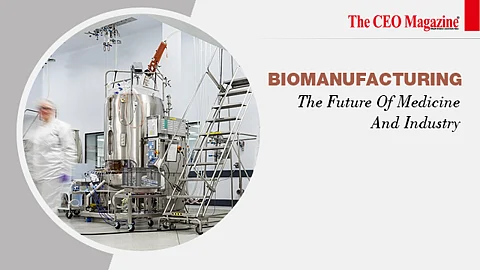

Biomanufacturing
The Future Of Medicine And Industry
Biomanufacturing is a term used to describe the process of creating products, such as drugs or industrial enzymes, using biological systems.
This innovative method is becoming increasingly popular in the world of medicine and industry due to its many benefits. This article will provide an overview of biomanufacturing, its applications, and its potential for the future.
Biomanufacturing is using living cells or organisms, such as bacteria or yeast, to produce commercial products. This process involves genetic engineering and other techniques to modify cells and create a desired outcome.
Biomanufacturing is typically used to create drugs, vaccines, industrial enzymes, and other products that are essential to modern society.
The applications of biomanufacturing are vast and varied, from life-saving medicines to sustainable industrial processes. Here are some of the key areas where biomanufacturing is making an impact:
Medicine: Biomanufacturing is a critical part of the pharmaceutical industry, with many drugs and vaccines now produced using this process. The use of biomanufacturing has led to more efficient production, faster development of new drugs, and a reduction in the cost of medicines.
Industrial Enzymes: Biomanufacturing is also used to create industrial enzymes that are essential in a wide range of industries, including food and beverage production, textiles, and paper manufacturing. These enzymes are more sustainable and efficient than traditional chemical processes, reducing the environmental impact of these industries.
Agriculture: Biomanufacturing is also being used to develop new crop varieties that are more resistant to pests, diseases, and environmental stresses. This technology is expected to have a significant impact on global food production and security.
Biomanufacturing is a rapidly evolving field with many exciting developments on the horizon. Here are some of the key areas where biomanufacturing is expected to make a significant impact:
Gene Editing: Advances in gene editing technologies, such as CRISPR-Cas9, is expected to revolutionise biomanufacturing by allowing for more precise modifications to living cells.
Artificial Intelligence: Biomanufacturing is becoming increasingly reliant on artificial intelligence and machine learning to optimise production processes and improve outcomes.
Sustainability: The use of biomanufacturing is expected to have a significant impact on the sustainability of many industries, as it allows for more efficient and environmentally friendly processes.
Biomanufacturing is a fascinating and rapidly evolving field, with many exciting developments on the horizon. From life-saving medicines to sustainable industrial processes, the applications of biomanufacturing are vast and varied.
As the field continues to evolve, it is expected to have a significant impact on many industries and improve the quality of life for people around the world.
Follow us on Google News
